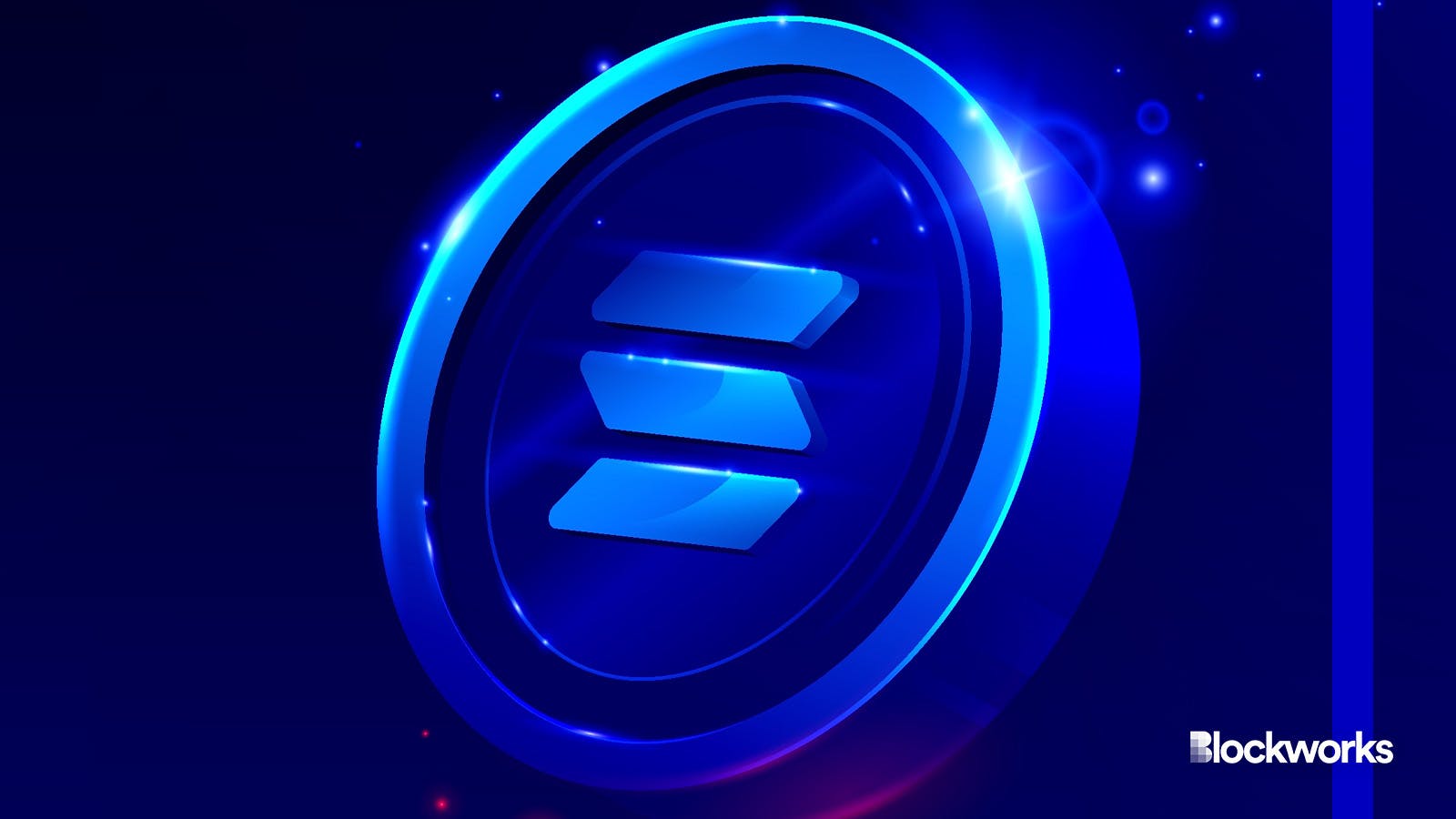Token extensions on Solana: Q&A with Solana’s head of strategy Austin Federa
Solana’s token extensions enables developers to build complex token interactions

INelson/Shutterstock modified by Blockworks
Token extensions are a feature that is enabled on the Solana blockchain that allows developers to incorporate features into their issued assets.
These features have ranging functionalities, such as incorporating confidentiality or creating token-gated access for particular goods or services.
In an interview with Blockworks, Solana’s head of strategy described the multiple use cases that token extensions enable and how it could bring institutional interest onto the blockchain.
Keep reading for excerpts from Blockworks’ interview with Federa.
Blockworks: Could you tell me a little more about token extensions on Solana?
Federa: Token extensions are the culmination of about three years of work, which really started at breakpoint 2021. This work was all done by the Solana Labs engineering team, and the goal of the program was to build the next generation of token programming on Solana.
Solana is a little different from other blockchains in that every time you deploy a token or an NFT you don’t actually deploy a controller or contract for it as well. On EVM chains, if I’m minting an NFT, I actually deploy a contract, and then I deploy the data, which is why NFTs are more expensive because you have to deploy more contracts.
Read more: Solana blockchain transactions almost double minutes into Jupiter airdrop
Solana, from the start, was built with a concept called program reusability, which is that every program on the network is designed to be used by anyone on the network. So, if i am minting a token, what I am doing instead of deploying the whole token program [is] I’m basically feeding a bunch of data into an existing program on-chain.
So, token extensions and this new token program were designed to bring a bunch of new features and optionality to what you can build with tokens. You can do everything you do on a private blockchain or a private subnet on the public Solana mainnet, and it is designed so you can use this single token program to issue all different types of tokens with different types of features and functionalities attached to them.
Blockworks: What types of functionalities are available? Could you elaborate on some of these?
Federa: On the blockchain, it’s very hard to restrict who is able to hold your token. Say if you’re suddenly now added to the OFAC sanctions list, I not only need to seize your assets, but I need to take them away from you. Or if you’ve lost your password, and you lost your seed phrase, there is no undo button that you get in Web3, which is necessary for a lot of Web2 financial products.
What we’ve seen token issuers very excited about is what is called the transfer hook authority. This is a transfer hook token extension, which is basically a program that can be called every time a token is transferred. This is really important because the program can either approve or deny a transfer. What it basically does is that it uses on-chain data to do a compliance check or just an authorization of transfer check. This allows you to build all sorts of complex token interactions.
Paxos just launched PAX USD on Solana, and GMO just launched two regulated stablecoins zUSD and the JPY stablecoin as well. All three of those stablecoins are using different token extensions to do things they can’t do on other networks.
Read more: Galaxy, DWS and Flow Traders eye stablecoin launch on Ethereum, Solana
Blockworks: What is the current state of token extensions on Solana? What is available and what is still in the works?
Federa: The token extensions program and concept are not done yet. It’s not an immutable program today, and there are still updates and refinements that need to be made. There will probably be some bugs found at some point, so it’s still going through that development process.
Folks at Solana Labs and Foundation are very open to adding new token extensions if there is a need or demand from the community, but most of that feedback so far is from large institutions and financial companies. There hasn’t been much feedback from Degens, and I’m sure they have lots of cool ideas for new token extensions that we would like to see.
Read more: Solana’s DeFi users mostly unbothered by network outage
I think we could, maybe in a year or two, move to a world where people are able to publish their own token extensions and anyone can go and submit a pull request. It’d be very cool to have a whole repository of token extensions that people can choose from. Right now, there are about 15 or 16. So token extensions are not entirely finished, but it is also totally usable and audited.
Get the news in your inbox. Explore Blockworks newsletters:
- The Breakdown: Decoding crypto and the markets. Daily.
- 0xResearch: Alpha in your inbox. Think like an analyst.






